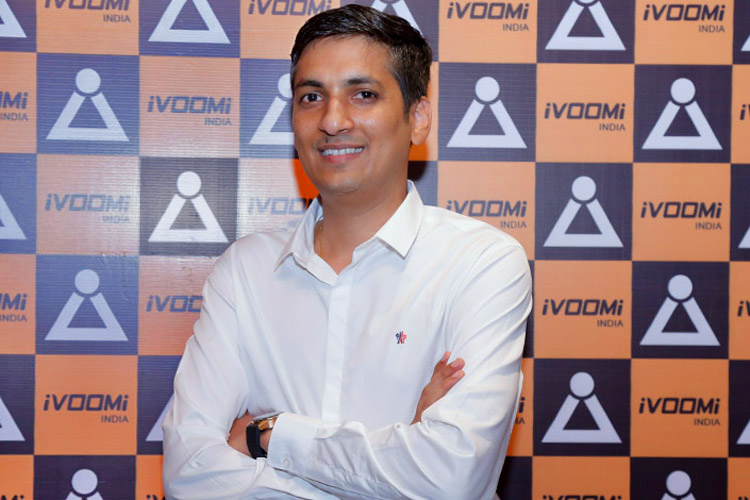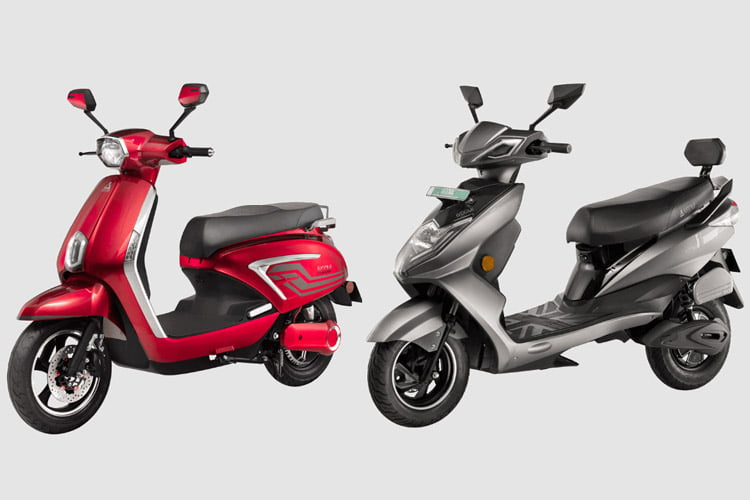
According to some survey reports published this year, the market for electric cars in the nation is speculated to appear around towards the end of 2025. In order to meet the target of 100 percent electric mobility by the end of 2030, government officials are also framing new-fangled rules and regulations along with new schemes. Hence, the market of this sector is expected to see huge growth in CAGR of 42.38 percent. These optimistic enhancements in this particular industry would magnetize huge foreign investors who want to expand their industry in this nation. Nonetheless, the growth expectations are also followed by disquietudes about certain hurdles concerning a couple of government policies, infrastructure, insufficient supply chains, and consumer behavior. In this regard, we spoke to Ashwin Bhandari, CEO and Co-founder of iVOOMi Energy about how to tackle the challenges, the loopholes in the government policies, and how the company is fulfilling the mission of 100 percent electric mobility in the country.
Q. Do you think the government policies and schemes are enough to fulfil the mission of 100 percent electric mobility by 2030? Do you like to highlight any cracks or send some messages?
The Indian government has constantly empowered the EV revolution, be it with the FAME subsidies or the regularization of the battery packs. We think the revolution has only begun and will continue for years to come. We believe that there are a lot of infrastructure possibilities that can come with the EV revolution, like convenient charging stations at shorter distances, that can really help the EV industry.
Q. One of the major issues now is safety awareness in this sector with some recent fire incidents of two-wheelers. What do you think about the issues and how you are tackling this concern?
iVOOMi is extremely vigilant when it comes to the safety of our battery packs and our vehicles. We believe that safety will always be the top priority when we design and develop our products. The iVOOMi battery packs are designed and manufactured in-house and are ensured to always have tier one quality cells, thermal material, and battery management system. We understand the importance of thermal management within the battery packs and design our battery cases to ensure effective heat outflow from the pack. Our batteries are certified by the esteemed ARAI under AIS156 standards. Also, the e-scooters at iVOOMi are certified by the Automotive Research Association of India (ARAI) and the International Centre for Automotive Technology (ICAT) under Central Motor Vehicles Rules (CMVR), which ensure that the vehicle goes under extreme tests to get the best safety parameters checked. On iVOOMi’s part, we ourselves do multiple tests to validate and ensure the safety of our products.
Q. Would you like to highlight why iVOOMi Energy was founded and when? What are your current business strategies that help you stay ahead of the competition curve?
iVOOMi Energy was established with a clear vision of adding value to the consumer’s life with engineered technology to introduce effective, reliable, and value-for-money products. Another idea behind iVOOMi energy was to combat carbon emissions to create a greener and brighter future. With the same dedication and passion, all our products are designed for a better future for mankind. For example, battery packs at iVOOMi are designed with swappable/removable technology for the convenience of charging and carrying them along. Keeping in mind the limitations of many Indian households that do not have the provision or infrastructure to charge their EVs in the parking area. This enables the consumer to charge their battery with convenience and ease. Likewise, the portable chargers are lightweight and easy to carry because of their compact design and can be powered by any household power socket. This unique style of empowering the consumer with convenience is the strategy that makes iVOOMi a cut above the rest.

Q. What are the various services and solutions you are currently offering to your clients? Is there anything stored in your pipeline in the coming few years?
iVOOMi intends to scale and grow in tandem with emerging technology such as connected scooters. A connected vehicle is an Internet of Things (IoT) technology that enables bi-directional communications over the Internet. We are continuously striving to enhance our technology by learning and paying attention to market feedback, which helps us identify, evaluate, and solve problems at their earliest. iVOOMi’s R&D department is highly active in coming up with solutions and ideas, which helps us stay connected to the market. In the coming years, we plan to enhance our battery technology to make it more power and performance efficient. We also plan to create a unified platform of connected scooters. We also provide the service of roadside assistance to all our consumers to assure them that iVOOMi will always be with them.
Q. Can you please shed some light on this sector’s growth in the coming years? Can you please compare the growth with that of China, Europe, and the US as India is now undertaking various initiatives?
India is a prospective two-wheeler provider and buyer. According to our research, every household has at least one two-wheeler. With India's EV mission to deliver the EV revolution to the nation and numerous positive statements from the Indian government, we believe the adoption of EVs in India will be faster and more widespread than in other nations, not only with two-wheelers but also with four-wheelers and other agricultural and logistics-based transportation industries. We anticipate that technology will become more important in the near future. The connected scooters will be the primary target. As India prepares for 5G, we believe that the experience of connected scooters will only improve and that scaling the same to 2-wheeler EVs would be the next logical step. Most of the IoT-oriented features are already available on the market. It is only going to go up and beyond from here, like infotainment, easy navigation, and personalized AI, which may be able to predict the rider’s behavior.
Q. We still outsource a major chunk of components from abroad, but India seems to have a promising future in terms of manufacturing. What are your views? Are you undertaking any initiatives?
Yes, iVOOMi Energy manufactures vehicles in India. We believe the industry is witnessing a transformation due to the government backing up EV policies and EV infrastructure in India. We are sure that in the near future, India will be a leader in the e-mobility space, supplying parts and components to other countries, and will be a hub for state-of-the-art technologies. iVOOMi aims to become a 100% made-in-India EV manufacturing company under the government’s initiative of Atmanirbhar Bharat. Thus, we have aligned our vision with the initiative and foresee our company’s commitment to ensuring the same.
Q. You recently announced investing Rs 200 crore to set up an electric two-wheeler manufacturing unit in Pune. Can you please highlight your current investment plans and what your plans are in terms of investment in the coming years?
Recently, we announced that we would establish a state-of-the-art manufacturing facility where both e-scooters and batteries would be manufactured under one roof. We strongly rely on and have faith in the research and development process, and we strive to invest in it so that our products' engineering technology advancement is consistent and cost-effective.
Q. What is going to be your roadmap in the coming five to ten years?
We are one of the fastest-growing EV manufacturers in India. With our advanced technological upgrades, we aim to deliver our customers highly efficient and affordable products in the future as well. We believe to spearhead and be accessible to all with our commitment to maximize green mobility across our nation, alongside building a strong bond with our end users and providing them a premium riding experience. Our vision is to create an ecosystem of cutting-edge technological solutions for e-mobility that will set a benchmark in the EV industry and infuse confidence in the general mentality of people in adopting EVs.

